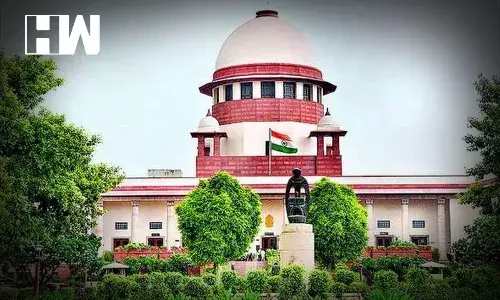The Supreme Court was hearing pleas seeking steps to be taken against hate speech incidents.
The Supreme Court on Wednesday, speaking on the functioning of mainstream television news channels in the country, said that they often give space for hate speech and then escape without any sanctions.
A bench of Justices KM Joseph and Hrishikesh Roy stated that anchors of television channels have an important duty to ensure that guests invited to their show do not cross the line.
“Role of anchor is very important. These speeches on mainstream media or social media that is unregulated. Mainstream TV channels still hold sway. The role of anchor is critical. It is their duty to see that hate speech doesn’t happen,” Justice Joseph said.
Also Read: Ratan Tata Appointed Trustee Of PM CARES Fund
He further said that, while freedom of speech is important, hate speech cannot be allowed on television and highlighted how one TV channel was heavily fined in the United Kingdom.
The judge further said, “One channel was fined heavily in UK. We don’t have that here. They are not being dealt with firmly. They can be taken off air, fined, if such sanction comes….”.Further adding on the matter the judge said, “We cannot give hate any air”.
“Unless the consequences of such hate speech hit the violators, such instances might continue”, justice Roy said. The Court also questioned the government on being a mute spectator.
The Supreme Court was hearing pleas seeking steps to be taken against hate speech incidents.
Earlier in July this year, the apex court had ordered the Union Home Ministry to prepare a detailed chart outlining States’ compliance with the general directions issued by it in the judgments of Shakti Vahini and Tehseen Poonawala, towards curbing hate speech.
During today’s hearing, the Court stated that politicians benefit the most from hate speech and television channels give them the platform to do so.
Senior Counsel Sanjay Hegde also echoed the same views.
“Channels and politicians feed on such speech. Channels get money. They keep ten people in debates,” Mr Hegde said.
He also argued that the self-regulation of news channels is done by a toothless body.
One of the petitioners, advocate Ashwini Kumar Upadhyay questioned whether the top court is equipped to go into individual violations each and every time it occurs.
“You have a point. Unless there is an institutional method to deal with it…” the SC concurred.
The Supreme Court directed the Central government to also file a counter-affidavit collating the State’s inputs and posted the case for further consideration on November 23.
As an independent media platform, we do not take advertisements from governments and corporate houses. It is you, our readers, who have supported us on our journey to do honest and unbiased journalism. Please contribute, so that we can continue to do the same in future.

